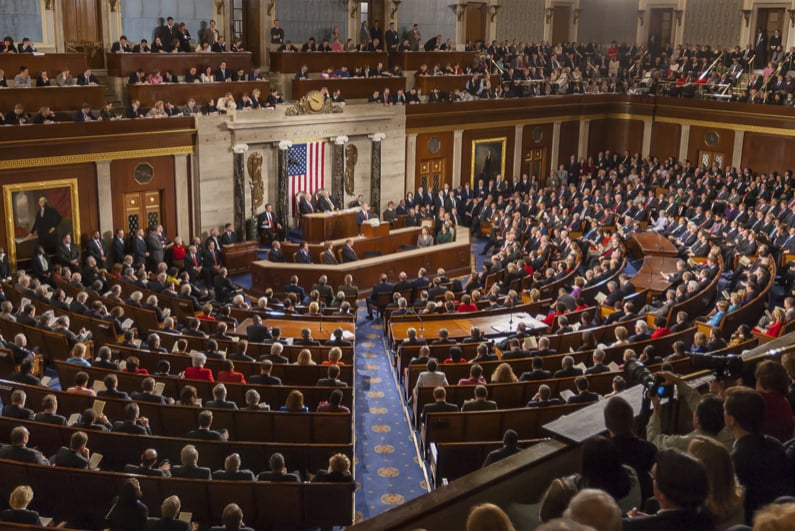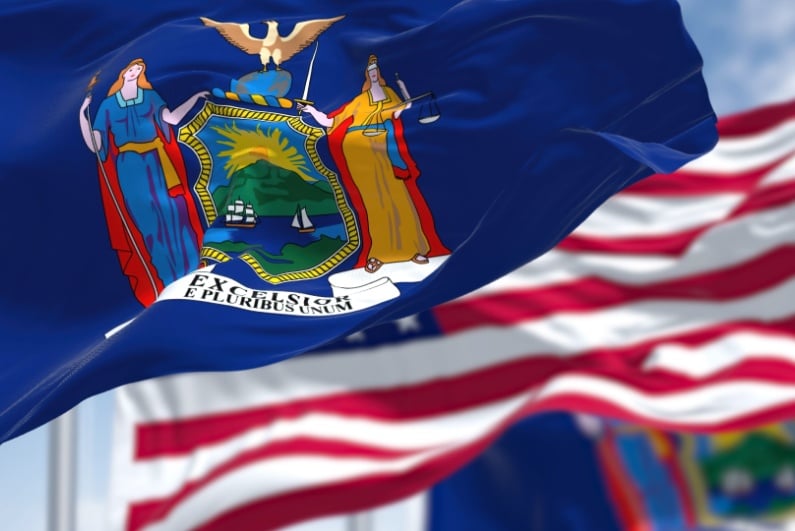Since sports betting was legalized following a Supreme Court decision in May, there has been a mass movement by many states to get in on the action. However, there are still major issues up in the air that are being discussed at a congressional hearing.
Details of the hearing
The parties that are deeply involved in the sports betting sector, including major sports leagues, will have their concerns heard at a congressional hearing that takes place on September 27.
This hearing involves the US House Subcommittee on Crime, Terrorism, Homeland Security and Investigations and is taking place in the Rayburn House Office Building. The subcommittee will be discussing a number of important issues that are likely to have a significant impact on the future of the industry.
The title for the hearing is “Post-PASPA: An Examination of Sports Betting in America”. It is the first such hearing to take place on the topic since the Supreme Court ruled in favor of ending the federal ban that had been in place since 1992 on sports gambling.
The witnesses who are set to provide testimony include the senior vice-president of the American Gaming Association, Sara Slane, the executive vice-president of communications and public affairs for the NFL, Jocelyn Moore, and the chair of the Nevada Gaming Control Board, Becky Harris.
A Republican from Wisconsin, Representative James Sensenbrenner will be chairing the hearing. Most of the discussions will revolve around the issue of how heavy the regulation on the industry needs to be.
What are the main issues?
One of the biggest issues is just how much regulation will be placed on the sports betting industry on a federal level.
At the moment, individual states have been developing their own rules for this sector but there have been calls in recent times for some intervention by the federal authorities.
In August, Chuck Schumer, the Minority Leader in the Senate, proposed introducing strict protections for those participating in sports gambling and to make sure that the integrity of sporting events in the country is maintained.
The major sports leagues would be in favor of this type of stricter approach. The NFL, in particular, has been calling for uniform sports gambling regulations to be introduced on a nationwide level.
Those who are more in favor of an open market approach, where rules and regulations are taken care of on a state-by-state level, will disagree. One of the shining examples they might hold up is Nevada, which has strictly monitored and enforced regulations in place on the gambling sector.
The states already look after matters of record-keeping, anti-money laundering, age restrictions and licensing when it comes to other types of gambling that they currently offer. They will argue that sports betting should not be handled any differently.
There is also the issue of how sports betting operators are able to use exclusive league data. For example, the NBA has already partnered with MGM Resorts as its official gaming partner to give it access to official league data as part of their deal.
This could give the sportsbooks operated by MGM Resorts an advantage over those who don’t have access to this type of data.
The leagues are likely to want gambling operators to pay a license fee for access to this type of data, but the AGA thinks that this data should be open and free for all to use as they see fit.
Monopoly situations could be created if only certain operators have partnerships with the respective leagues and are the only ones with access to certain data. This could lead to the industry becoming uncompetitive, which ultimately would have a negative impact on sports bettors.
Another major issue that needs to be discussed any time a new form of gambling is legalized is the impact it might have on levels of gambling addiction, particularly among young people.
As so many young people are infatuated with sports, they can be easily influenced if they are bombarded with advertisements that showcase the seemingly all-positive side to sports betting.
Some say that sports betting will become a gateway drug toward heavier levels of gambling. It is expected that some protective measures are likely to be introduced, especially as it is such a hot topic in the gambling industry worldwide.
Finally, there will be discussions about how best they can deal with the black market activities. Previously, the figure placed on illegal sports wagers annually was around the $150bn mark.
There are still only four states that have opened sportsbooks in the country since the end of the federal ban, so residents in the other states are still likely to turn to illegal options to satisfy their sports betting needs.
What happened in the hearing?
At the start of the hearing, Sensenbrenner discussed the three options that are currently viable for Congress. They would be to reintroduce the federal sports gambling ban, defer all regulation to the individual states, or to implement federal standards that are uniform.
He was of the belief that something has to be done to provide proper protection for the bettors.
The NFL has proposed a number of measures that it believes should be implemented by Congress. They include the creation of a minimum age limit for sports betting of 21 years old, a ban on in-play bets and the requirement to use official league data.
Slane rebuked the proposed federal framework that the NFL is pushing for. She said: “As Congress has refrained from regulating lotteries, slot machines, table games, and other gambling products, it should similarly refrain from engaging on sports wagering barring an identifiable problem that warrants federal attention.”
She was adamant also that official league data should not come at a price as there is no precedent, she said, to treat this data as intellectual property.
A representative of the Coalition to Stop Online Gaming urged Congress to bring in some form of legislation to prevent a Wild West environment from growing in the sector, especially with criminal enterprises.
There were also calls to bring back the 1961 Federal Wire Act. This would see certain types of gambling businesses no longer being allowed to operate.




